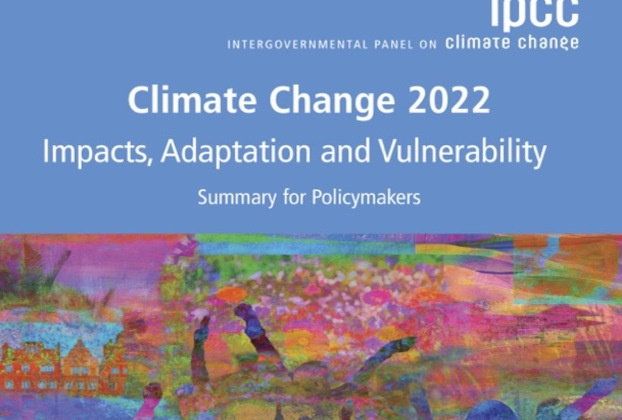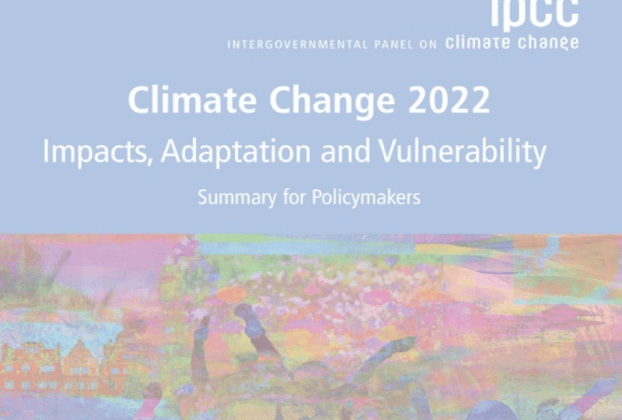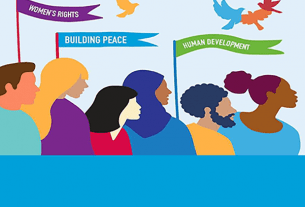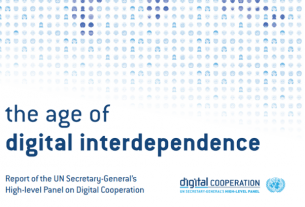
The UN’s Intergovernmental Panel on Climate Change (IPCC) 6th report on climate change is out and it is disturbing. The report is entitled Climate Change: Impacts, Adaptation and Vulnerability, 2022. The report is authored by 270 authors from 67 countries and it assesses the impacts of climate change on ecosystems and human communities at global and regional levels. To read the full report, go here https://www.ipcc.ch/report/ar6/wg2/
Here is their press release:
“Climate change is affecting nature, people’s lives and infrastructure everywhere. Its dangerous and pervasive impacts are increasingly evident in every region of our world. These impacts are hindering efforts to meet basic human needs and they threaten sustainable development across the globe.
All life on Earth – from ecosystems to human civilization – is vulnerable to a changing climate. Since the first IPCC reports, the evidence has become stronger: our world is warming and dangerous climate change and extreme events are increasingly impacting nature and people’s lives everywhere. This can be seen in the depths of the ocean and at the top of the highest mountains; in rural areas as well as in cities. The extent and magnitude of climate change impacts are larger than estimated in previous assessments. They are causing severe and widespread disruption in nature and in society; reducing our ability to grow nutritious food or provide enough clean drinking water, thus affecting people’s health and well-being and damaging livelihoods. In summary, the impacts of climate change are affecting billions of people in many different ways.
Since the Fifth IPCC Assessment Report, published in 2014, a wider range of impacts can be attributed to climate change. In other words: there is new knowledge that climate change caused them or made them more likely. In particular, increasing heat and extreme weather are driving plants and animals on land and in the ocean towards the poles, to higher altitudes, or to the deeper ocean waters. Many species are reaching limits in their ability to adapt to climate change, and those that cannot adjust or move fast enough are at risk of extinction. As a result, the distribution of plants and animals across the globe is changing and the timing of key biological events such as breeding or flowering is altering. These trends are affecting food webs. In many cases, this reduces the ability of nature to provide the essential services that we depend on to survive – such as coastal protection, food supply or climate regulation via carbon uptake and storage.
Changes in temperature, rainfall, and extreme weather have also increased the frequency and spread of diseases in wildlife, agriculture, and people. We see a lengthening wildfire season and increases in the area burned. Roughly half of the world’s population currently experiences severe water shortages at some point during the year, in part due to climate change and extreme events such as flooding and droughts. Drought conditions have become more frequent in many regions, negatively affecting agriculture and energy production from hydroelectric power plants.
People living in cities nowadays face higher risks of heat stress, reduced air quality because of wildfire, lack of water, food shortages and other impacts caused by climate change and its effect on supply chains, transport networks and other critical infrastructure. Globally, climate change is increasingly causing injuries, illness, malnutrition, threats to physical and mental health and well-being, and even deaths. It is making hot areas even hotter and drastically reducing the time people can spend outside, which means that some outdoor workers cannot work the required hours and thus will earn less.
Climate change impacts are expected to intensify with additional warming. It is also an established fact that they are interacting with multiple other societal and environmental challenges. These include a growing world population, unsustainable consumption, a rapidly increasing number of people living in cities, significant inequality, continuing poverty, land degradation, biodiversity loss due to land-use change, ocean pollution, overfishing and habitat destruction as well as a global pandemic. Where trends intersect they can reinforce each other, intensifying risks and impacts, which affect the poor and most vulnerable people the hardest.
Climate change risks and impacts can be reduced, within limits, if humans and nature adapt to the changing conditions. The scale and scope of actions to reduce climate risks (adaptation) have increased worldwide. Individuals and households along with communities, businesses, religious groups and social movements are adapting to climate change already. However, the Working Group II Report identifies large gaps between ongoing efforts, and adaptation needed to cope with current levels of warming, with the scale of the challenge varying in different regions. The report also highlights that the effectiveness of available adaptation options decreases with every increment of warming. Successful adaptation requires urgent, more ambitious and accelerated action and, at the same time, rapid and deep cuts in greenhouse gas emissions. The quicker and further emissions fall, the more scope there is for people and nature to adapt (see FAQ 4 for further details).
The focus of our new report is on solutions. It highlights the importance of fundamental changes in society at the same time as conserving, restoring and safeguarding nature in order to meet the Paris Agreement and the Sustainable Development Goals. It is clear now that minor, marginal, reactive or incremental changes won’t be sufficient. In addition to technological and economic changes, shifts in most aspects of society are required to overcome limits to adaptation, build resilience, reduce climate risk to tolerable levels, guarantee inclusive, equitable and just development and achieve societal goals without leaving anyone behind.
The strong and interdependent relationships between climate, nature and people are fundamental to reaching these goals. This is emphasized more strongly in the new Working Group II Report than in previous IPCC assessments. We now know that a healthy planet is fundamental to secure a liveable future for people on Earth and that’s why we say that the needs of climate, nature and local communities have to be considered together and prioritized in decision making and planning – every day and in every region of our world.”



